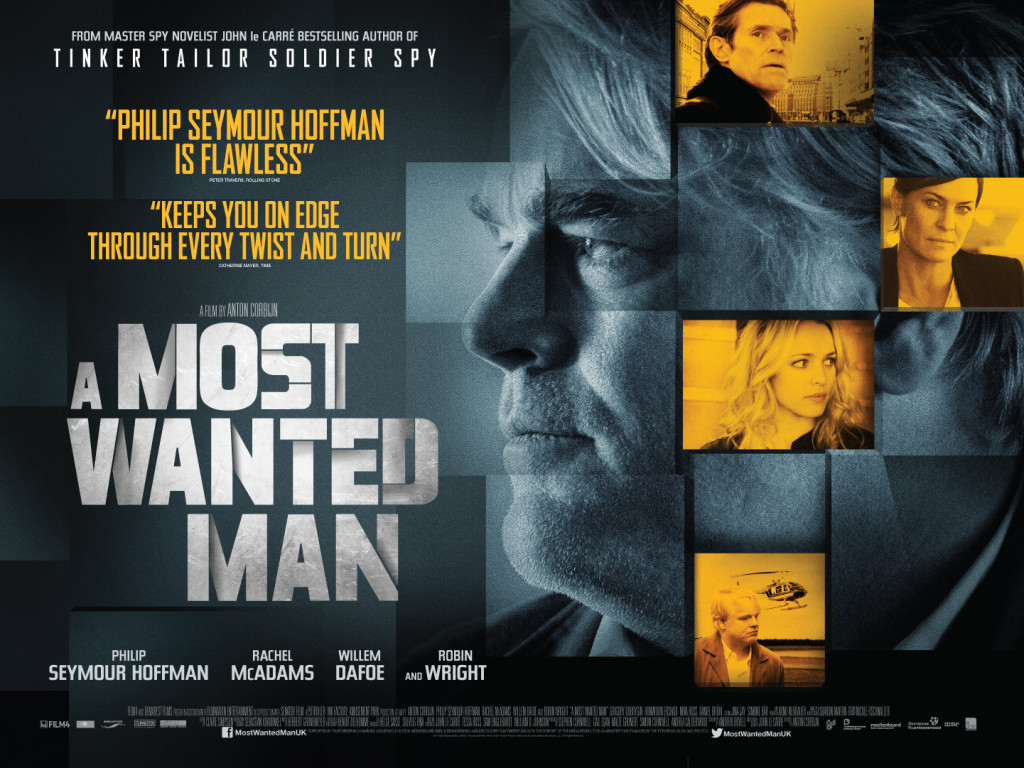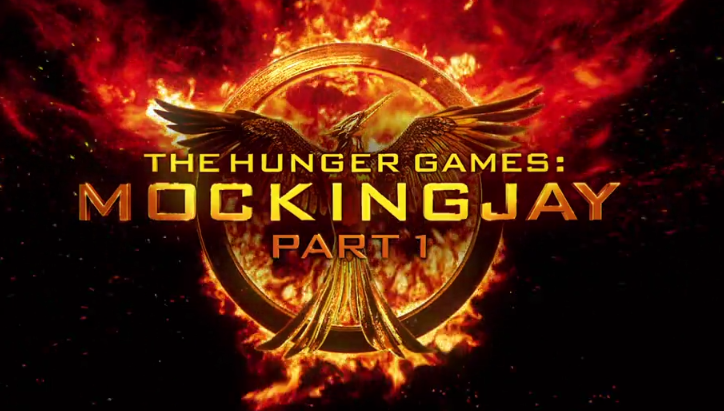Don’t ask me why I watched two of Philip Seymour Hoffman’s last films back to back – it occurred purely out of happenstance. I couldn’t tell you why, other than both movies were relatively enjoyable.
A Most Wanted Man is yet another piece of media related to the clandestine world of John le Carre. Seemingly boring people talk in broad daylight, never using specific verbs, and yet somehow communicating about spycraft, double dealings and crossings, along with the occassional pang of conscience from the protagonist. This time, Hoffman plays Günther Bachmann, a German espionage agent (which, apparently, most people in Germany don’t even know exist) tasked with examining the goings-on in Hamburg. Hamburg, as you might know, is where Mohammad Atta and the 9/11 hijackers met, completely unobstructed, on their way to the United States. This has been perceived by Germans as a major failure on their part, and in some sense demand real or perceived recompense for their sins towards the Western world.
As such, the arrival of a Chechnya refugee into Germany, Issa Karpov, garners the attention of pretty much every major intelligence agency in the globe. Karpov’s name was well-known for associations with Russian Stalinism, and apparently he also amassed a fortune in the realm of several million euros in a Hamburg bank. Still, nobody knows Issa’s true motivations – is he an innocent refugee who wants to settle his past, or a potential terrorist looking to provide financial backing to his comrades in arms? Günther needs to, and wants to, find out, but not before dealing with others who want to encroach on his “success”.
Seriously, if that extended synopsis made you fall asleep, then I would not recommend A Most Wanted Man to you at all. It is a complex film with complex exposition and themes that require your every waking moment of attention to follow. As such, one might find the proceedings pretty exhausting, since since ancillary details come to the fore, and a large cast of characters shuffle in and out of scene without regard to their potential importance. As such, if you miss some minor detail, you may find yourself hopelessly lost in a world of spycraft.
If you do watch it, though, know that does not surpass Tinker Tailor Soldier Spy (either iteration, even the 2011 one). In a way, we could consider it more timely and topical, which somewhat diminishes its potential impact (if released in, say, 2008 with Iraq/War on Terror fatigue, it would be much more timely). Rather, if anything, watch for the performance. Philip Seymour Hoffman perfectly understates the role of espionage grunt work. He presents a jaded cynicism when spy agencies step on each other’s toes for no larger reason than potential advancement and promotion (this also gives the whole film a dry wit). Günther’s moral compass gets him into more trouble than it seems worth, and yet you can’t help but relate in some way. Probably not the constant drinking and smoking, though!
Anyway, watch it, please. It’s a great film if you go into it knowing you need to pay attention.
The Hunger Games: Mockingjay Part 1 is a hilariously, unnecessarily long title to the arbitrary half-a-movie adaptation of the last young adult novel in the Hunger Games series. My thoughts on the series already exist in written form on this very website, but that does not mean I hate them. On the contrary, they dance in the same realm as Marvel films for me at this point – fun, frivolous entertainment with light social commentary sometimes splattered on top.
Mockingjay puts it straight on the nose, though, which makes it far more interesting! You can tell the screenwriters struggled to depict Katniss as less of a person and more a symbol used by either side in the civil war over Panem. Still, it comes through in a fairly obvious way, and I appreciate it as subtext and less overt than it could be. Still, this also means that the film’s pacing goes slightly off the rails when you spend more than half of it in a bunker. Sometimes, they just go other places, just for a change of scenery (I have a feeling Suzanne Collins knew that, WOW, we are doing bunker things a whole lot).
The problems lie exactly where they lie beforehand: Katniss is just not interesting. She is not a free agent in the machinations of a plot, but a person torn to and fro in the grand narrative taking place (that’s why it makes little sense to think of her as a feminist status symbol, but I already discussed that in detail in the earlier link). Because of this, you might imagine some character development might happen, or, in the words of President Snow, she would move beyond the “narrowest of concerns”. Maybe she would think about something other than Gale, or Peeta, or a young adult level, cringe-worthy love triangle. You’d think wrong! She never seems to evolve beyond the victim mentality, or a kind of learned inaction as people keep telling her what to do.
This may change in the final film, of course, but that’s the problem with half-a-movie being normal for trilogies (quadrilogies?) these days – you end up with zero resolution to any themes or ideas set in the first part, and then you can’t remember them for the second. It reduces the potential impact for ticket sales, which I understand but can’t really endorse for the actual quality of the product. The last time this happened, with Harry Potter, they expected audiences to just remember what happened in film seven (that sounded absurd in my head too), and I frankly did not even after reading all the books.
So yes, Mockingjay Part 1 amounts to a preview of a conclusion I probably will not care about come November, basically totalitarian emotional pornography for young women (there’s a lot of that these days, I guess). But Philip Seymour Hoffman and a bunch of other character actors relish their small roles, so I find it hard to complain!


